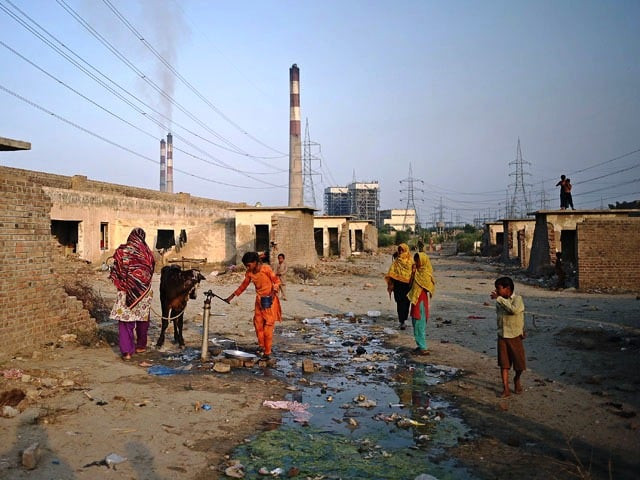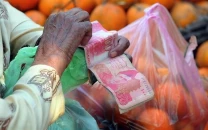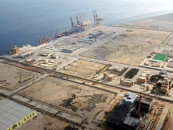EU backtracks on cash pledges
European countries have decided en bloc to provide relief goods instead of giving hard cash.

The decision of the European Union and individual countries has drastically reduced the ratio of the cash in total pledges from 61 per cent to less than 35 per cent.
According to statistics of the Economic Affairs Division, a window to deal with world donors, since September 2 cash pledges have dramatically come down to $363.2 million from an all time high of $618.5 million.
The total promises of aid by the international community have increased to $1.05 billion. Out of total $1.05 billion commitments, $745.8 million or 71 per cent will come through the United Nations and other world aid agencies.
It is not clear whether figures were miscalculated or numbers exaggerated earlier, but instead of the disbursement figure increasing in absolute terms, it has also reduced to $54.7 million in four days. On September 2, the government had reported that the international community had disbursed $90.7 million.
“Donors may have realised that instead of cash the goods will be more useful in early recovery phase,” said the EAD official spokesperson. However, he did not answer why the EU and individual states changed their pledges 38 days after the disaster hit one-fifth of the country and affected 20 million people.
The United Nations has said that due to Pakistan’s “image deficit,” the international community has shied away from giving hard cash. The donors’ reluctance to trust Pakistan may create more problems in the rehabilitation phase as billions of dollars will be required in rebuilding, Finance Minister Dr Hafeez Shaikh had said earlier.
A senior official of the UN said on Monday that Pakistani authorities have not been able to chalk out a comprehensive roadmap to attract necessary funds from international donors for early relief and recovery.
This is not the first time that the international community has “played hands with the government of Pakistan”. In April 2009, the world committed to give $5.4 billion to Pakistan against sacrifices rendered in the war on terror. Later, the authorities realised that there were no additional pledges, as the donors had actually decided to reallocate their funds under the umbrella of the so-called “Friends of Democratic Pakistan.” The commitments are far from being fulfilled as only $291 million have been given so far.
The UK, the third largest world donor, has converted its entire $115 million cash to provision of relief goods through the UN and its own development arm. The EU, the fourth largest and the second biggest contributor, will also not give $87.5 million in cash but disburse the goods through nongovernmental channels.
Sweden has also changed its mind to give $21 million cash and declared to give goods of equivalent amount. Norway has taken back its cash pledge of $19 million. The Netherlands has also backtracked from giving $8.39 million in cash. Denmark’s $22 million commitment and Belgium’s $2.54 million will not be given to the government and they too, will distribute goods through the UN.
With reduction in cash commitments, the pledges in kind of goods have surged significantly in four days. Statistics show that the commitment of goods has increased to $587.2 million from $245 million. The commitments of goods amount to 56.2 per cent of the total pledges. Donors have released goods equivalent to $205 million, one-fifth of the total pledges.
The EAD official said that Pakistan had to rely on donors for valuation of goods, as the government did not have the mechanism to do so. He said Pakistan has requested donors to provide inventories of goods so the government has complete records.
Published in The Express Tribune, September 7th, 2010.



















COMMENTS
Comments are moderated and generally will be posted if they are on-topic and not abusive.
For more information, please see our Comments FAQ